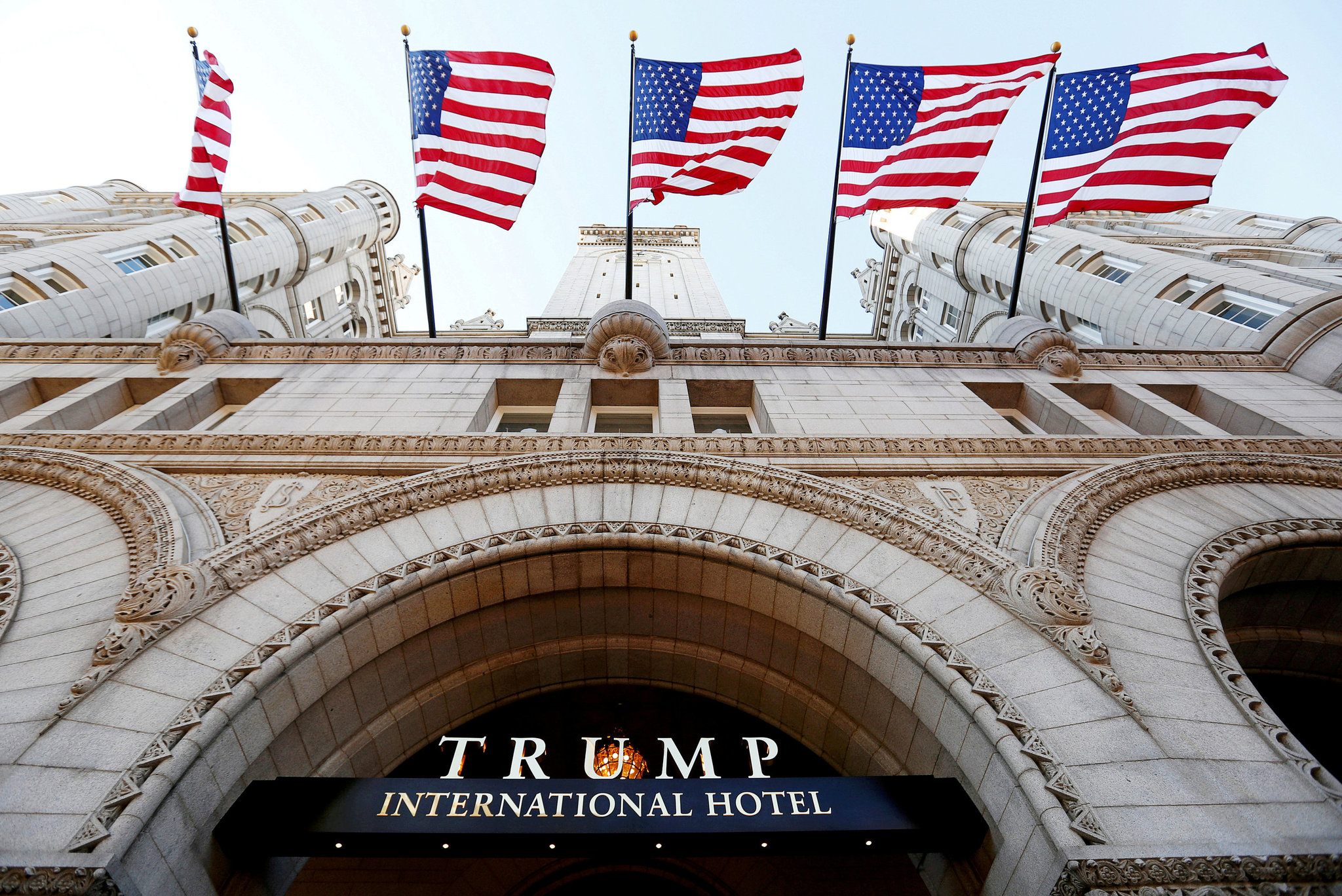Taking the President’s Self-Dealing to Court
Lawsuits filed this week by the attorneys general of Maryland and the District of Columbia and by nearly 200 Democratic members of Congress may be the best chance to hold President Trump accountable for unconstitutional self-dealing, since the Republican-controlled Congress won’t.
Drafters of the Constitution were so determined to reduce potential corruption that they prohibited officials from accepting “any present, emolument, office, or title, of any kind whatever” from foreign governments without approval from Congress, and barred presidents from receiving payments from federal or state governments other than a salary.

But President Trump seems determined not to let the Constitution stop him from doing what he wants. He has refused to divest his hotels, real estate properties, golf courses and other businesses, many of which earn money and receive other benefits from foreign governments and federal and state agencies.
Mr. Trump’s businesses have already become vehicles for foreign and American officials to curry favor with him. Many foreign diplomats and their governments are holding events and booking rooms at the Trump International Hotel at the Old Post Office building in Washington. China and other countries have granted dozens of trademarks to the president and his family, allowing Trump companies to expand their licensing business into new markets. The General Services Administration, a federal agency that reports to the president and manages government buildings, did Mr. Trump a huge favor by deciding in March that he could keep his ownership of the Washington hotel, even though the lease clearly states that no elected official can benefit from it.
The Trump Organization may be receiving foreign and domestic emoluments that the public is not even aware of. Ideally, Congress would hold hearings and demand that the president turn over his tax returns and other financial documents. It would also review and take votes on which foreign emoluments Mr. Trump could accept. Such a process would be laborious and time-consuming, but it is what the Constitution requires if the president is unwilling to divest.
Regrettably, that is not likely to happen as long as both houses of Congress are controlled by Republicans, who have shown little eagerness for holding him accountable. That is where the latest lawsuits, along with a similar case filed earlier by the legal watchdog group Citizens for Responsibility and Ethics in Washington, come in. Courts could dismiss these cases on the grounds that the plaintiffs do not have the legal standing to sue the president. But some legal experts believe that the case brought by the attorneys general might be allowed to proceed, because states are legally considered “coequal sovereign” with the president and because they claim actual harm from unfair competition by Trump properties.
I have a glimpse of how Mr. Trump intends to fight. In a filing in the watchdog group’s lawsuit, the Department of Justice said Trump businesses could accept benefits from foreign governments and federal and state agencies because these are ordinary commercial transactions, not emoluments, a rather arcane term that the department defined as “profit arising from an office or employ.” In other words, an emolument would be a payment for a job.
But other legal scholars say that dictionaries, the papers of the founders and other historical sources suggest that when the Constitution was written the term encompassed profits from commercial transactions. Taking the Justice Department’s argument to its logical conclusion would mean that the president could not accept a salary from a foreign government without consulting Congress, but he wouldn’t have to seek permission to rake in millions of dollars in profit from a foreign country through a business he directly owns. Why would the nation’s founders leave a gaping loophole in the Constitution that could easily be exploited by corrupt officials?
Mr. Trump’s callous disregard for ethical norms is exactly the attitude that the founders sought to protect the country against, through the emoluments clauses they put into the Constitution.